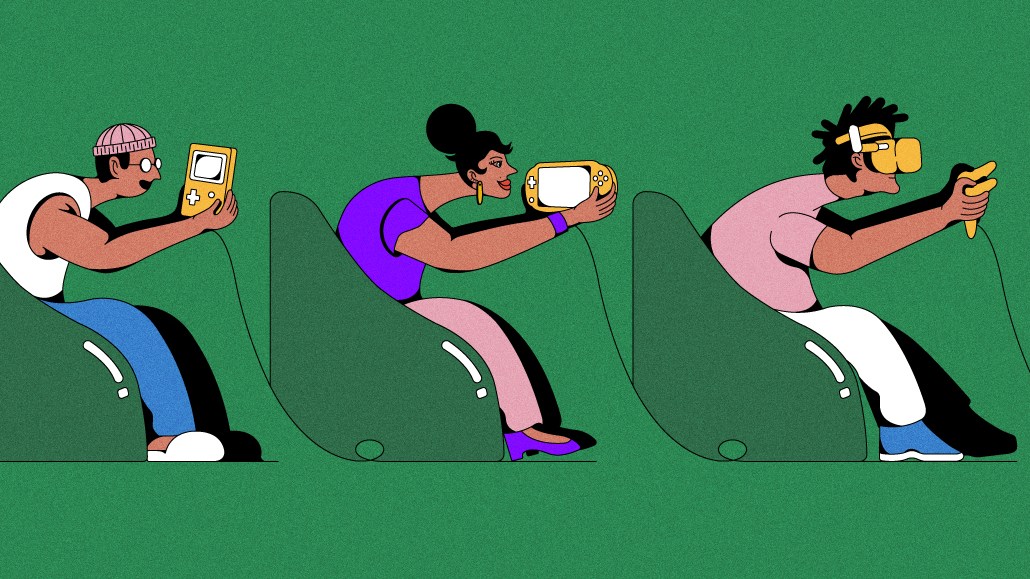Secure your place at the Digiday Media Buying Summit in Nashville, March 2-4
Chipotle’s largest investment in esports to date defies conventional wisdom.
It’s spending its money in an area where few non-endemic brands have gone before: fighting games. The violent content on show in so many fighting games has been a turnoff for many mainstream brands. It has created an opening that Chipotle is intent on filling to reach what is widely known as one of marketing’s most hard to reach audiences.
At Evolution Championship Series, the annual fighting game championship held in Las Vegas last weekend, Chipotle was everywhere. The restaurant brand became one of the tournament’s presenting sponsors this year, highlighting its effort to reach the competitive gaming audience in ways that differentiate Chipotle from the glut of brands partnering with larger esports leagues or teams for the same purpose.
“Is everybody running to do a fighting game? Not necessarily, but we view that as an opportunity for us,” said said Chipotle CMO and chief brand officer Chris Brandt. “Everybody can play in ‘Fortnite,’ or in some of these other popular things, and we’ve done a little bit of that — but here, we can show up with a community that has a passion point, and there’s a lot of other brands that just aren’t there.”
Chipotle has done some outreach to the esports and wider gaming communities in the past, the former through branded “Fortnite” tournaments and the latter via in-game activations in Roblox. But its relationship with Evolution Championship Series — more popularly known to fans as simply “Evo” — represents the brand’s largest investment in the competitive side of gaming yet. As cracks appear in the facade of the major esports leagues, the fighting game community and its central events are becoming an increasingly attractive alternative to advertisers interested in reaching competitive gamers.
Activations around Chipotle’s Evo partnership include a community lounge at the event, replete with side tournaments for eliminated players; daily giveaways of pins and other Chipotle merch; and, notably, an in-game integration into the popular Capcom fighting game “Street Fighter 6,” allowing players to earn in-game currency by ordering Chipotle online during the month of August.
“It’s kind of 10 months of activations, as opposed to just kind of the one-off activation we’ve had with other games,” Brandt said. “I don’t know if the competitive place is for us or not; we’ll continue to explore that down the road. But we really just want to try to be endemic to the gaming community and do things that are contributing to gaming — not just being an advertiser.”
Chipotle’s partnership with Evo shows how brands are beginning to realize the natural engagement and marketing value of the fighting game community. In 2022, Evo’s main brand partners were Sony INZONE and FreshCut; this year, the event’s sponsor list includes brands such as Chipotle, AT&T, Sony INZONE, PlayStation Tournaments and Red Bull.
“We had to get through last year’s event to prove it out, but we believe that centralization of the fighting game community is going to create an all-boats-rise opportunity, where the right commercial partners are going to be able to build something that leverages not only Evo’s events, but also its connections,” said Stuart Saw, the CEO of the agency RTS, which co-owns Evo alongside Sony Interactive Entertainment.
Sony’s involvement in Evo offered Chipotle yet another benefit: the ability to advertise directly on PlayStation Network. At the moment, users logging onto their PlayStations are served targeted ads promoting Chipotle’s partnership with “Street Fighter.” For now, the restaurant company is the only non-gaming-endemic brand to score this kind of central advertising inventory within the PlayStation Network.
“Because PlayStation owns Evo, and because they have really invested in the FGC, we unlocked that opportunity for Chipotle,” said Chris Mann, svp of the agency Rev/XP, which helped organize the deal. “Chipotle was the first brand that did all of this stuff, and some of our assets had a 30 percent click through rate.”
More in Marketing

Future of Marketing Briefing: AI’s branding problem is why marketers keep it off the label
The reputational downside is clearer than the branding upside, which makes discretion the safer strategy.

While holdcos build ‘death stars of content,’ indie creative agencies take alternative routes
Indie agencies and the holding company sector were once bound together. The Super Bowl and WPP’s latest remodeling plans show they’re heading in different directions.

How Boll & Branch leverages AI for operational and creative tasks
Boll & Branch first and foremost uses AI to manage workflows across teams.






